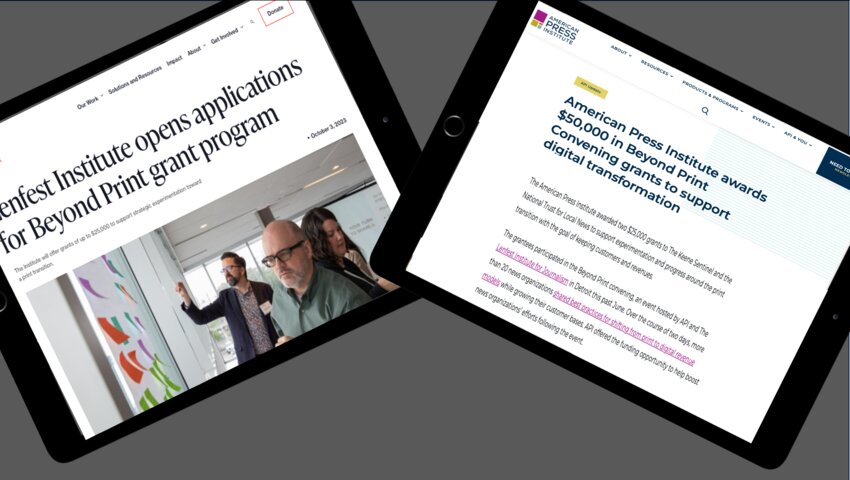More About International News Online
More About International News Online
Blog Article
Fascination About International News Online
Table of ContentsInternational News Online Fundamentals Explained9 Simple Techniques For International News OnlineThe Definitive Guide for International News OnlineUnknown Facts About International News OnlineAll about International News Online
Some social media sites in spite of having reasonably small general audiences stand out for having high shares of users that frequently go to the site for news. On the various other hand, just 15% of Snapchat customers consistently get information on the app.
reporters, however except the general public, June 27, 2022 Information on Twitter: Taken In by Most Users and Trusted by Several, Nov. 15, 2021 Greater than eight-in-ten Americans get news from digital tools, Jan. 12, 2021 Measuring News Intake in a Digital Period, Dec. 8, 2020 Several Americans Obtain Information on YouTube, Where Information Organizations and Independent Producers Flourish Side-by-side, Sept.
The Of International News Online
When asked whether social media is a good or bad point for freedom in their country, a median of 57% across 19 nations state that it is an excellent point (International News Online). In almost every nation, near to fifty percent or even more state this, with the view most typical in Singapore, where roughly three-quarters think social media sites is a good point for freedom in their country.
And in the united state, only around a third think social media declares for freedom the smallest share among all 19 countries surveyed. In eight countries, those that believe that the political system in their nation permits them to have an impact on politics are also most likely to claim that social networks is a good idea for freedom.
Those that watch the spread of false information online as a significant hazard to their nation are less most likely to claim that social media is a good point for freedom, contrasted with those who watch the spread of false information online as either a small hazard or otherwise a danger at all.
International News Online Things To Know Before You Get This
Older grownups in 12 countries are less most likely to state that social media is an excellent point for freedom in their country when compared to their more youthful equivalents. In Japan, France, Israel, Hungary, the UK and Australia, the space in between the youngest and earliest age groups is at least 20 portion points and varies as high as 41 points in Poland, where virtually nine-in-ten (87%) younger grownups say that social media has been a great thing for democracy in the country and just 46% of adults over 50 state the exact same.
Throughout the six issues examined, few often tend to state they see no adjustments as a result of boosted connection instead seeing things changing both positively and adversely and commonly both at the exact same time (International News Online). An average of 84% claim technical connectivity has actually made individuals much easier to manipulate with incorrect information and reports one of the most amongst the six issues tested
Indeed, in the majority of countries, those who assume social media has actually made it much easier to manipulate people with misinformation and rumors are additionally more probable to assume that social networks has made individuals news much more educated. When Recommended Reading it comes to politics, the internet and social media are generally seen as turbulent, with a mean of 65% saying that individuals are now a lot more divided in their political point of views.
The Greatest Guide To International News Online
This feeling of hazard is related to the prevalent belief that people today are currently easier to control with incorrect info and rumors many thanks to the internet and social networks. Around fifty percent or even more in every country surveyed shares this view. And in position like the Netherlands, Australia and the UK, around nine-in-ten see individuals as more manipulable.
For instance, in South Korea, 90% of those under age 30 state social media makes individuals less complicated to adjust, contrasted with 65% click reference of those 50 and older. (Remarkably, U.S.-focused study has actually located older adults are most likely to share false information than more youthful ones.) People with even more education are also commonly most likely than those with much less education to say that social networks has led to people being easier to manipulate.

Getting My International News Online To Work
In Sweden, Japan, Greece and the Netherlands, around eight-in-ten or even more share this sight, while in Malaysia, a smaller bulk (56%) claims the exact same. Younger grownups tend to see social networks making individuals a lot more enlightened than older adults do. Older grownups, for their part, do not always see the web and social media sites making individuals less informed concerning what's happening in their nation; instead, they're somewhat most likely to define these systems as having little result on individuals's details degrees.

Report this page